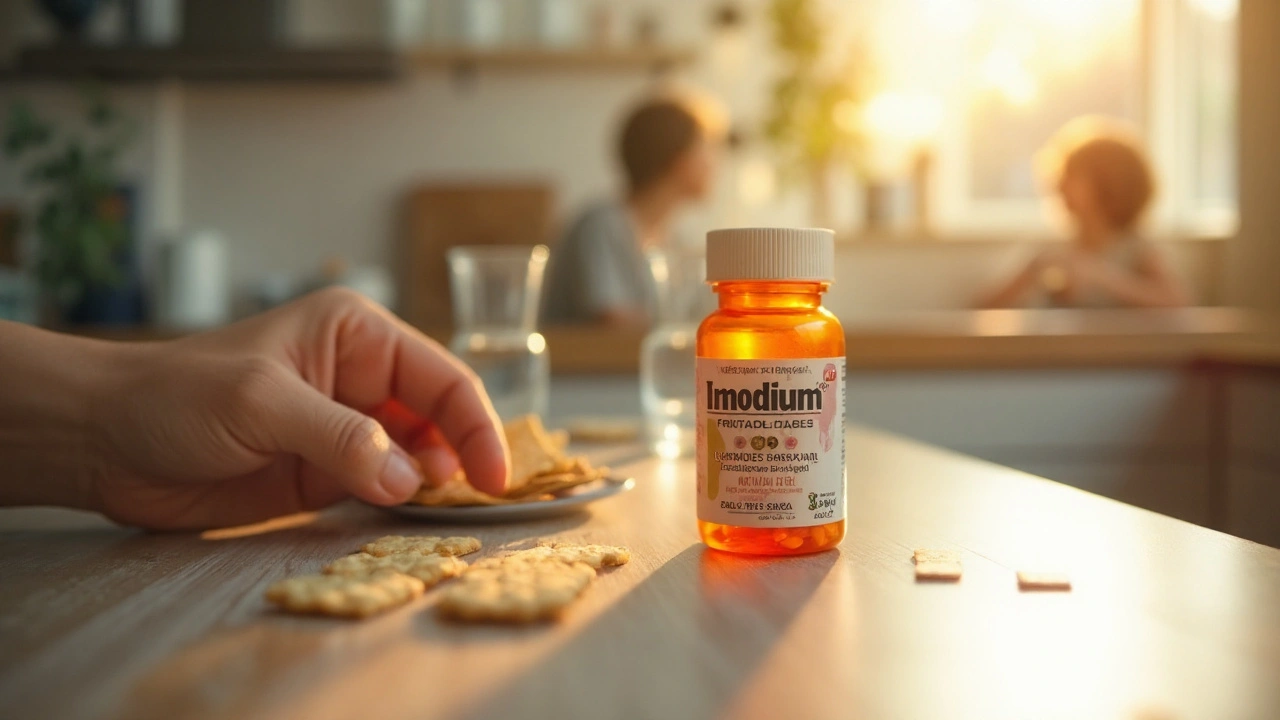Diarrhea Treatment: Quick Relief and Smart Prevention
If you’ve ever been stuck on a bathroom break that won’t end, you know how uncomfortable diarrhea can be. It can strike after a bad meal, a stomach bug, or even a new medication. The good news is most cases clear up fast with the right steps. Below you’ll find practical tips you can use right now, plus some longer‑term ideas to keep your gut steady.
Fast‑Acting Relief: What Works Now
First thing to do is stop the fluid loss. Sip clear liquids like water, broth, or an oral rehydration solution every 15–30 minutes. A cup of clear soup not only adds fluid but also gives a touch of salt and potassium that you lose in loose stools.
For most adults, an over‑the‑counter loperamide tablet (Imodium) can slow the gut enough to let you get back to daily life. Follow the label: usually 2 mg after the first loose stool, then 2 mg after each subsequent one, up to 8 mg a day. If you have a fever, blood in the stool, or recent antibiotics, skip loperamide and move to the next step.
When the cause is a bacterial infection, zinc‑based lozenges or bismuth subsalicylate (Pepto‑Bismol) can reduce the frequency of stools and soothe irritation. Take the recommended dose for adults, but avoid if you’re allergic to aspirin.
Long‑Term Strategies: Keep Diarrhea at Bay
Look at what you ate in the last 24 hours. Spicy foods, dairy, and high‑fat meals are common triggers. Cutting them out for a few days can give your gut a break.
Probiotics are a simple, daily habit that restores good bacteria. A capsule with > 5 billion CFU of Lactobacillus or Bifidobacterium taken after meals can reduce future episodes, especially after antibiotics.
Some prescription meds originally made for other conditions are being repurposed to treat chronic diarrhea. For example, low‑dose rifaximin, an antibiotic used for travel‑related gut bugs, is now approved for irritable bowel syndrome with diarrhea. If your diarrhea hangs around for weeks, ask your doctor if a repurposed drug might help.
Never ignore warning signs. Blood, severe abdominal pain, high fever, or diarrhea lasting more than three days in an adult warrants a doctor’s visit. Children, seniors, and anyone who’s dehydrated need prompt medical attention.
In short, hydrate, use OTC meds wisely, watch your diet, and consider probiotics or repurposed prescriptions for stubborn cases. Follow these steps and you’ll be back to feeling normal faster than you’d expect.
Imodium: How It Works, Dosage, Side Effects & Alternatives Explained
Find out what Imodium is, how it fights diarrhea, the right dosage, possible side effects, and the best alternatives. Practical tips for safe use and when to see a doctor.
